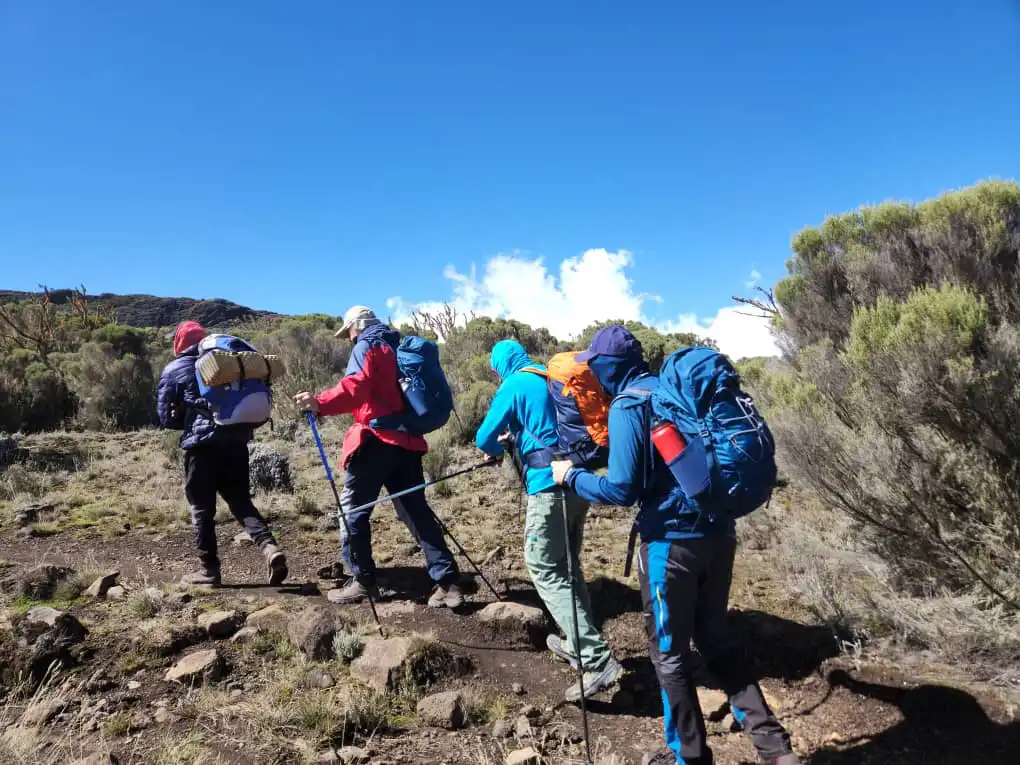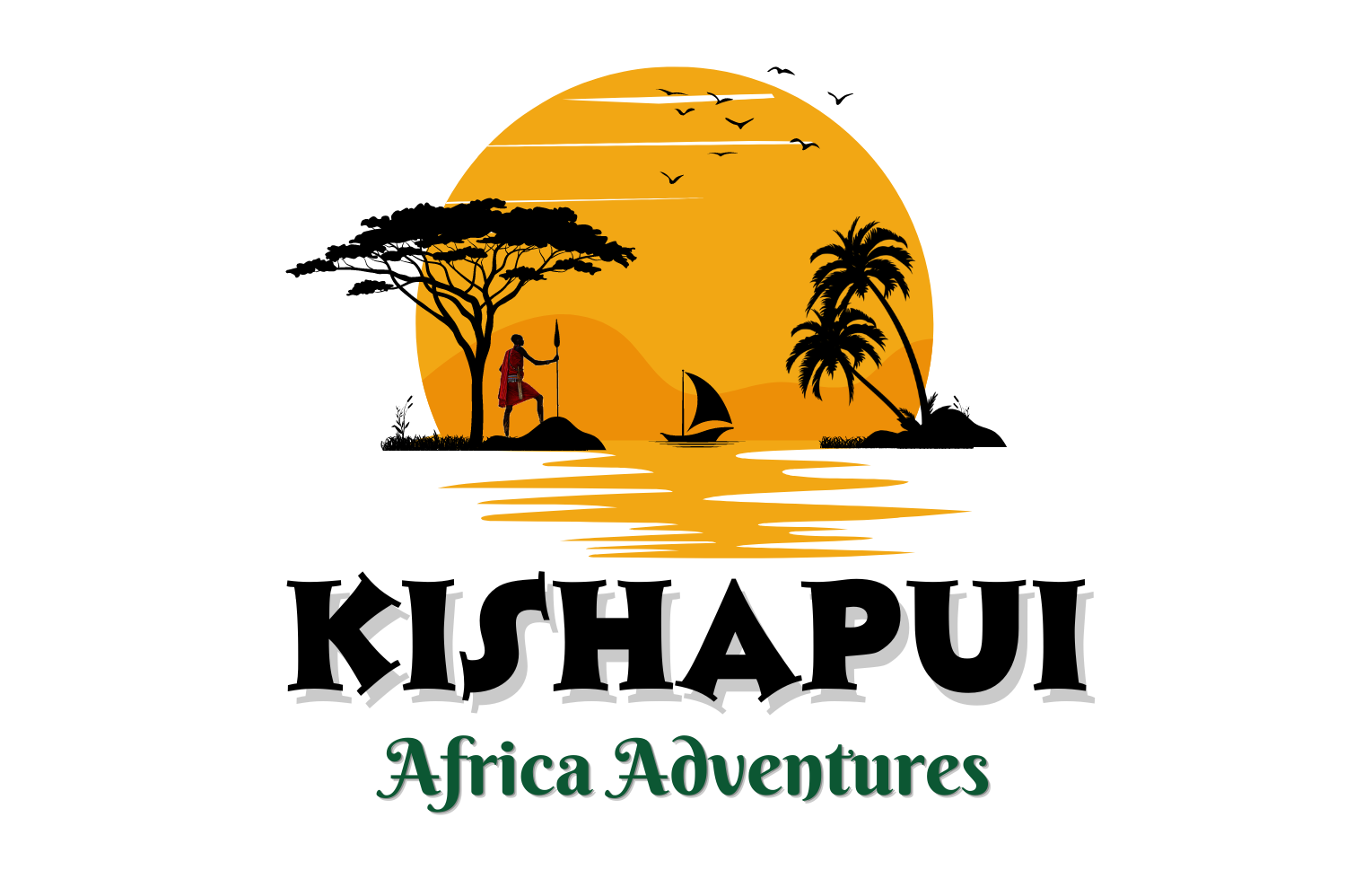Call / Chat: +255 768 670 133 | info@kishapuiadventure.com
Preparing for Mountain Climbing
Home > Preparing for Mountain Climbing

IMPORTANT THINGS TO KNOW & CONSIDER WHEN PREPARING FOR MOUNTAIN CLIMBING IN TANZANIA
Welcome to Kishapui Africa Adventures! If you’re gearing up for an exhilarating mountain climbing adventure in Tanzania, you’re in for an unforgettable experience. Tanzania offers some of the most iconic climbs in the world, including Mount Kilimanjaro, Africa’s highest peak, and Mount Meru. To ensure your climb is safe, enjoyable, and successful, here’s everything you need to know and consider when preparing for mountain climbing in Tanzania.
- Choosing the Right Time to Climb
- Dry Seasons: The best time to climb Mount Kilimanjaro and Mount Meru is during the dry seasons, which are from January to mid-March and from June to October. These periods offer more stable weather conditions, clear skies, and better visibility.
- Wet Seasons: While it is possible to climb during the rainy seasons (March to May and November to December), the trails can be slippery, and the weather can be unpredictable, making the climb more challenging.
- Physical Preparation
- Fitness Level: Climbing mountains in Tanzania requires a good level of physical fitness. Start a regular exercise routine that includes cardio, strength training, and endurance exercises. Hiking, running, and cycling are excellent ways to build stamina.
- Acclimatization: Proper acclimatization is crucial to avoid altitude sickness, especially for Kilimanjaro. Consider choosing a longer route that allows for gradual ascent and extra acclimatization days.
- Health and Safety
- Medical Check-Up: Before embarking on your climb, have a medical check-up to ensure you are fit for high-altitude trekking. Discuss any pre-existing conditions with your doctor.
- Vaccinations and Medications: Ensure you are up-to-date with routine vaccinations. It’s recommended to have vaccinations for Hepatitis A and B, Typhoid, Tetanus, and Yellow Fever (if arriving from a Yellow Fever risk country). Carry a personal medical kit with essential medications, including altitude sickness tablets, pain relievers, and any prescription medications you require.
- Travel Insurance: Obtain comprehensive travel insurance that covers high-altitude trekking, medical evacuation, and trip cancellations.
- Packing Essentials
- Clothing: Pack layered clothing to adapt to varying temperatures. Essential items include:
- Moisture-wicking base layers.
- Insulating layers such as fleece jackets.
- Waterproof and windproof outer layers.
- Warm hat, gloves, and thermal socks.
- Footwear: Invest in high-quality, well-fitting hiking boots with good ankle support. Break them in before your climb to avoid blisters.
- Gear: Essential gear includes:
- A high-quality sleeping bag rated for cold temperatures.
- Trekking poles for stability and support.
- A headlamp with extra batteries.
- A sturdy, comfortable backpack.
- Accessories: Sunglasses, sunscreen, lip balm, and a water bottle or hydration system are crucial for protection and hydration.
- Documentation and Money
- Passport and Visa: Ensure your passport is valid for at least six months beyond your travel dates. Obtain a Tanzanian visa online or upon arrival.
- Money: Carry a mix of US dollars and Tanzanian shillings. ATMs are available in major towns, but it’s wise to have cash for remote areas. Credit cards are accepted in some lodges and hotels, but may incur fees.
- Choosing the Right Route and Guide
- Routes: Kilimanjaro has several routes, each varying in difficulty, scenery, and duration. Popular routes include:
- Marangu Route: Known as the “Coca-Cola” route, it offers hut accommodation and a gradual ascent but has lower success rates.
- Machame Route: Known as the “Whiskey” route, it’s more challenging but offers stunning scenery and higher success rates.
- Lemosho and Northern Circuit Routes: These are longer routes that allow for better acclimatization and higher success rates.
- Experienced Guides: Choose a reputable tour company with experienced guides. They provide valuable knowledge about the terrain, weather conditions, and necessary safety measures.
- Environmental Responsibility
- Leave No Trace: Adhere to the principles of “Leave No Trace” to minimize your environmental impact. Pack out all waste, stay on designated trails, and respect wildlife habitats.
- Support Conservation: Opt for eco-friendly tour operators and participate in conservation efforts. This helps preserve the natural beauty and biodiversity of the mountains.
- Understanding Local Customs and Etiquette
- Language: While English is widely spoken, learning a few basic Swahili phrases can enhance your interactions with local guides and porters.
- Cultural Respect: Show respect for local customs and traditions. Dress modestly and be courteous to the local communities you encounter.
- Tipping: Tipping is customary and appreciated. It’s recommended to tip your guides, porters, and cooks. As a guideline, tip $10-$20 per day for guides, $5-$10 per day for porters, and $10 per day for cooks.
- Mental Preparation
- Positive Mindset: Mental preparation is as important as physical fitness. Stay positive, determined, and mentally strong throughout your climb. Set achievable goals and take each day as it comes.
- Team Spirit: Climbing as part of a team requires cooperation and camaraderie. Support your fellow climbers and work together to overcome challenges.
At Kishapui Africa Adventures, we are dedicated to providing you with a safe and enriching mountain climbing experience in Tanzania. Our experienced team will guide you through every step of your journey, ensuring you have all the information and support you need.
Ready to Start Your Mountain Climbing Adventure?
Explore our range of mountain climbing packages tailored to offer you the best of Tanzania’s peaks. Book your climb with Kishapui Africa Adventures today and let us help you reach new heights.
Contact & Follow Us
- Write us a Review
- Kishapui Africa Adventures
- @kishapui_africa_adventures
- kishapuiadventure
- Kishapui Africa Adventures
- info@kishapuiadventure.com
- +255 768 670 133 / +255 753 293 231
- +255 768 670 133 / +255 753 293 231
- Arusha, Tanzania.



